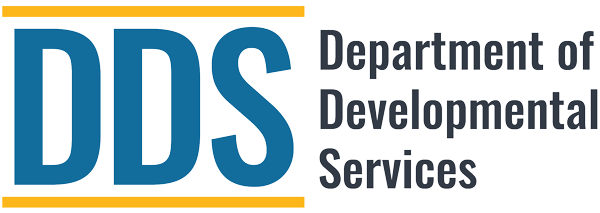Dear Community,
As fire continues to affect our communities, we send our deepest gratitude to the firefighters, first responders, regional center employees, and community members who are protecting and supporting everyone impacted by them. Our hearts remain with the individuals and families facing disruptions and unimaginable loss. Over 250 individuals receiving regional center services have completely lost their homes. Please be aware of and use the resources and supports available in your area during these challenging times. www.ca.gov/LAfires provides lots of information on how to prepare and protect yourself, and how to get help when you need it. This isn’t the start to the year we anticipated, but we will continue to assist in all the ways that we can.
Looking Ahead at 2025:
As we look to the year ahead, Governor Newsom on January 10, 2025, released the proposed state budget for the next fiscal year, which starts on July 1, 2025. There are no reductions to core programs and no new taxes in the proposed budget. For the Department, the budget includes a $3.193 billion dollar increase from this year’s budget, for a total of $19 billion. $3.04 billion of this new funding is for the first two investments below:
- Rate reform. The proposed budget includes a full 12 months of costs for rate reform, which was fully implemented just a few weeks ago on January 1, 2025. This completes and continues a multi-year, multi-billion-dollar investment in service providers and their workforces. The Department continues to work with service providers and the regional centers to review and adjust rate models, to maintain and expand our provider network and workforce, and thus maintain access to services and supports for individuals and families.
- Caseload increases. We are proud of California’s efforts to bolster the use of early intervention services for young children. Participation in the Early Start Program has nearly exceeded pre-COVID-19 projections. Our forecast of the average number of people supported by regional centers each month during the fiscal year that starts July 1, 2025 is over 500,000 people. This is a new record. We expect to support almost 40,000 additional people next year. This is equivalent to adding another large regional center in a single year. See the caseload trend here.
- Regional center operations. A third major investment is to fund regional center support for another 40,000 individuals next year. The proposed budget includes just over $151 million for more service coordinators and other employees.
Our budget documents detail several other small adjustments for new laws that will take effect soon, continued maintenance of the Fairview and Sonoma Developmental Center sites, and staffing at state-operated facilities. We look forward to upcoming legislative review of these budget proposals.
Beyond the budget, we have foundational work to do, such as replacing our aging case management and fiscal systems. These are called the San Diego Information System (SANDIS) and the Uniform Fiscal System (UFS), respectively. Their replacement is called “LOIS”—the Life Outcomes Improvement System. In addition to reminding us daily of what the system’s purpose is, “LOIS” pays tribute to Lois Curtis, one of the people who sued and won the Olmstead court decision by the United States Supreme Court. The Olmstead decision established the right of every individual to live in the least restrictive environment that is appropriate to meet their needs. When fully designed and implemented, LOIS will provide individuals and families with direct access to their information, upcoming schedules, and communication with their regional centers. It will provide similar self-service functions for service providers. Regional centers and the Department will have a modern system to support individuals, families and service providers with automation of routine tasks, better reporting capabilities, and more functionalities that currently are manual work-arounds or vary by regional center. This multi-year effort will involve extensive community input, and we look forward to sharing more details about LOIS later in 2025.
Work on the following initiatives will continue, and many of them address themes that also have been emerging from development of the Master Plan for Developmental Services:
- Standardizing the referral, intake, and assessment process. Consistency, simplicity, and common definitions of the milestones in this process are essential. This will allow us to know how well people are being supported, and how timely and equitable this support is.
- Standardizing the vendorization process that is used to approve new service providers. This will provide more statewide uniformity and consistency in the practices of regional centers.
- Expanding the Provider Directory, the first statewide inventory of all service providers, what they offer, and their capacities. Future phases will collect more information and provide the base from which vendorization (above) will occur. Eventually there will be a public view too, to help individuals and families find available service providers and learn about them.
- Standardizing the assessment tools for respite, personal assistance, and day care services. This too should be a more consistent experience and outcome for individuals, families, and regional centers, and simpler for everyone involved.
- Defining generic services and services commonly available from regional centers. There should be consistent statewide information about what is required before accessing regional center services, and what those services are.
- Improving data collection and transparency. Implementation of standard demographic data statewide began this month. We are working with the community to learn what information we should have about housing, equity, employment, and other topics. People should be able to see themselves in the data. And data should be used to make fully informed decisions about supports and services.
There will be work on other important topics too:
- Workforce investments are coming later in 2025. There will be bilingual stipends for direct support professionals (DSPs), and a DSP University with training curriculum that leads to higher wages.
- The Master Plan for Developmental Services, mentioned above and anticipated to be released soon after the Committee’s March 2025 meeting, is expected to include recommendations for improved governance and oversight of regional centers. The Committee, its workgroups, and the public have put a lot of work into describing what our community wants to see in California’s future for people with developmental disabilities.
- A standard information packet about Lanterman Act programs is nearly complete. It soon will join an existing information packet about the Early Start program, here on the Department’s website.
- The Department’s Language Access Plan requires documents that are vital for the public to be translated into multiple languages. You have the right to receive information in your preferred language.
- And of course, no list ever is complete. If you don’t see your topic of interest in this letter, that’s okay. Just ask us about it, at info@dds.ca.gov.
No one can do this stuff alone. The success of each effort requires a community pulling together, contributing our many and diverse voices and experiences, and genuinely hearing each other. It takes collecting data and information, trying things and accepting failure before we get them right, and then continuing forward. And yet, it is not about the “success of the effort”—rather, success is determined by whether each effort has a positive impact on the lives of individuals and families. We always must keep that outcome in mind.
There is much to be grateful for. Support is all around us for the important work that must be done. What we do matters, and it matters that we do it well. Doing things well requires all of us working together to shape outcomes to be the best they can be, and then learning and doing more work to make those outcomes even better for Californians.
With gratitude and in partnership,
– Pete
Director
This Look Ahead at 2025 message is available in the following languages:

